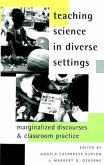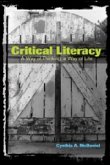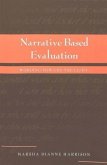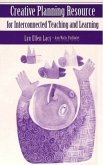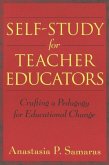What happens when teachers «relinquish the authority of truth providers»? Ninth grader Sasha Pringle, one of the student voices in Classroom Calypso, asserts that such a self-effacing posture empowers students by «releasing the writer within,» thereby fostering a critical, creative, and reflective disposition. Winthrop R. Holder re-represents students not as marginalized beings merely absorbing information but as subjects taking center stage and inscribing themselves into history. On their literary pilgrimage seeking self-knowledge, students, employing tale-telling, recast their classroom as a symposium - a place where popular culture orchestrates the discourse. This is an invaluable book for educators, parents, and anyone interested in understanding and facilitating the voices of urban youth.
«What is most captivating about this story is the notable absence of any presumptuousness on the part of the author, despite the significant lessons being conveyed. Indeed, this to me is the main lesson to be gained from sharing this experience: that as a teacher, it sometimes helps to let your instincts and the experiences that have shaped your being guide you. Only at second glance do the rigor and demands of this methodology become fully apparent - 'self-effacement' as a classroom management technique requires great reserves of alacrity, calm, and sense-of-self. Here, in an easy, storytelling style of writing, a teacher relates his experiences in successfully stemming the deluge of teenage energy flowing freely through an urban classroom, channeling it into a major, ongoing, electrifying project. He did so not by constructing a great concrete retaining wall of disciplinary codes, rewards, and retribution. He did it by allowing himself to be swept up in the flood, floating along with the current. By first constructively abandoning his traditional role of authority, he convinced his students of the power of their energy and the rewards at stake in exercising their own initiative to harness it. I have seen the outstanding results. They are indeed well-documented in the accomplishments of the author and his students.» (Patrick I. Jeffers, Assistant Professor of MIS & Logistics, Iowa State University)


